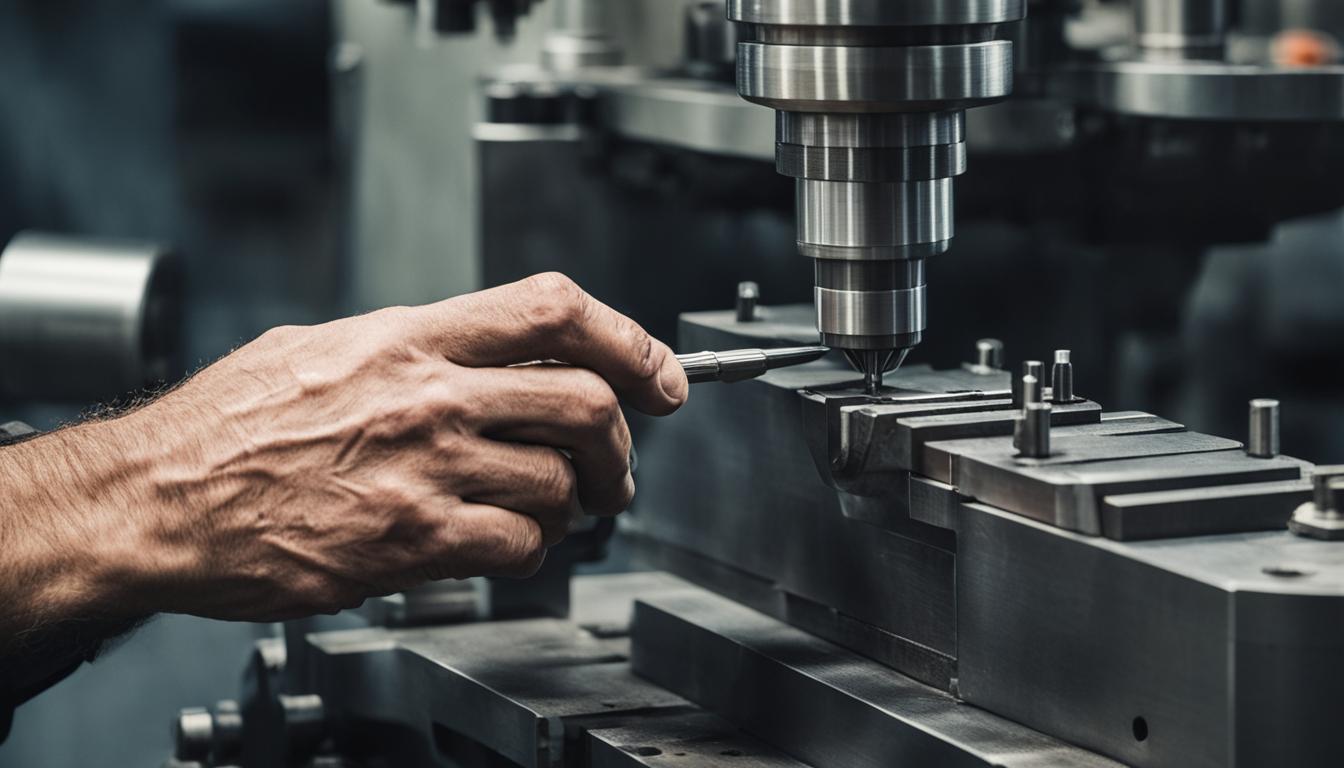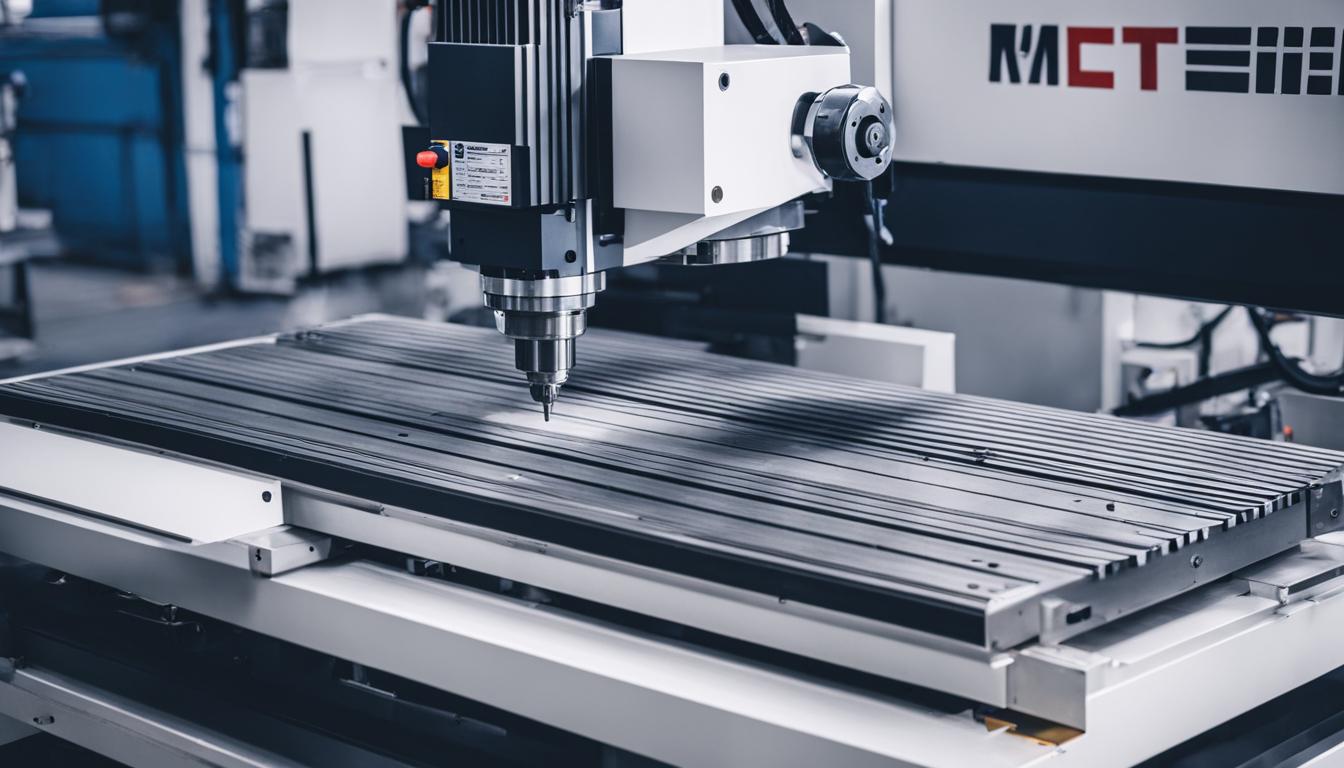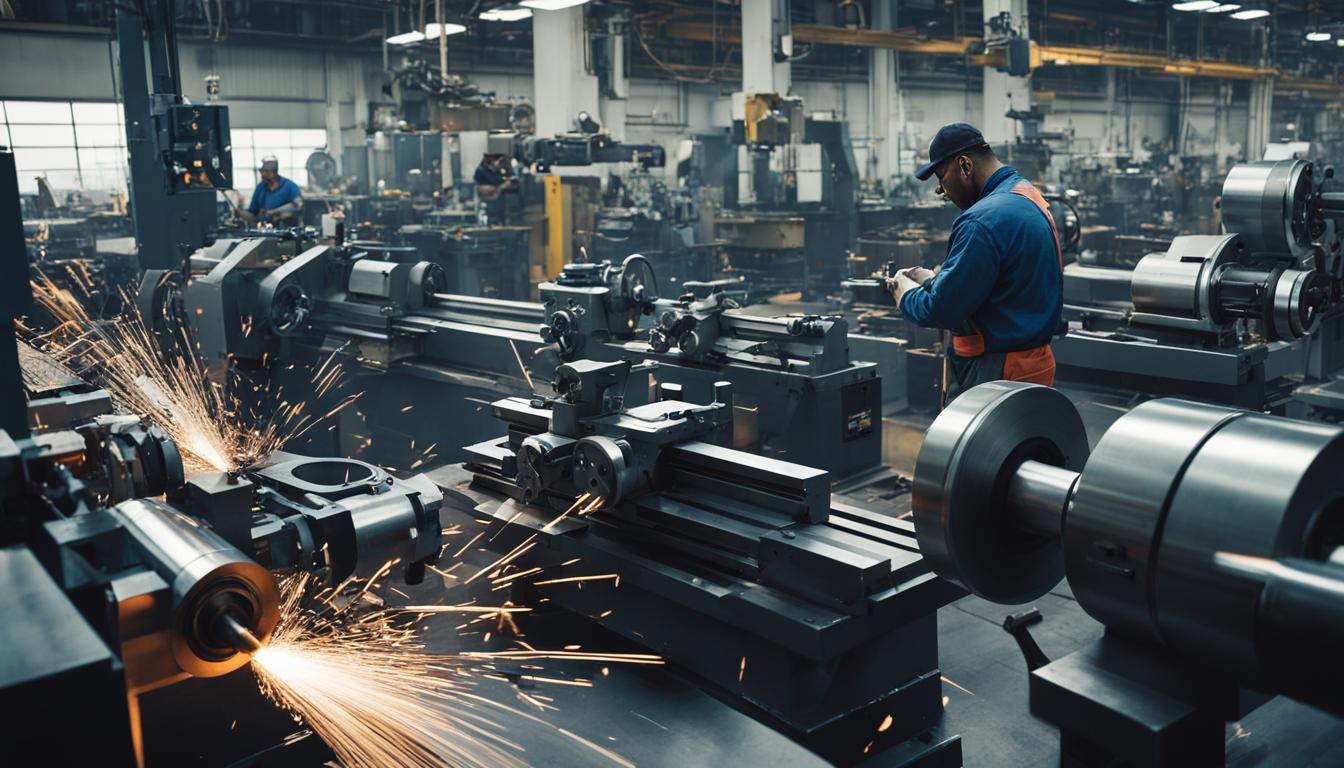A career in machining offers numerous benefits for those seeking a rewarding and stable profession. Machining roles provide opportunities for continuous skill development, as professionals work with cutting-edge technologies and advanced manufacturing processes. The field offers competitive salaries, with experienced machinists often earning above-average wages. Job security is another advantage, as the demand for skilled machinists remains high across various industries, including aerospace, automotive, and medical device manufacturing.
Machining careers also offer diverse paths for advancement, from becoming a CNC programmer to moving into supervisory or management positions. The hands-on nature of the work appeals to those who enjoy creating tangible products and solving complex problems. Additionally, machinists often experience a sense of pride and accomplishment in producing precision components that are essential for countless products used in everyday life.
With the ongoing evolution of manufacturing technologies, machining careers provide a dynamic work environment where innovation and creativity are valued. For individuals who excel in technical fields and enjoy working with their hands, a career in machining can be an excellent fit, offering both personal satisfaction and professional growth opportunities.
The Day-to-Day Job Duties of a Machinist
As a machinist, your day-to-day job duties revolve around precision and attention to detail. You play a crucial role in bringing technical drawings and blueprints to life using precision tools and machinery. Let’s explore the key responsibilities that make up your day as a machinist.
Interpreting Technical Drawings and Blueprints
One of the fundamental tasks of a machinist is to read and interpret technical drawings and blueprints provided by customers. This requires a strong understanding of engineering principles and the ability to visualize and comprehend complex specifications.
Operating Precision Tools and Machinery
Once you have a clear understanding of the technical drawings, you will set up and operate precision tools and machinery. These machines can vary from lathes and milling machines to CNC (Computer Numerical Control) machines. Your expertise in geometry and math skills will be crucial in successfully operating these tools and machinery to create accurate and precise components.
Attention to Detail and Quality Control
As a machinist, you are responsible for running the machine and making the part. This involves carefully following the specifications provided in the technical drawings, ensuring every measurement and cut is precise. Attention to detail is a must to deliver high-quality components. Once the part is complete, you also play a vital role in inspecting the finished product to ensure it meets the required quality standards.
Materials and Expertise
Machining encompasses working with a wide range of materials, from common metals like iron, steel, stainless steel, and aluminum to exotic metals like titanium. Your expertise in selecting the appropriate tools, speeds, and feeds for each material is crucial to achieving the desired results and maintaining the longevity of your precision tools.
Overall, a machinist’s day-to-day job duties require a combination of technical expertise, attention to detail, and precision. From interpreting technical drawings to operating machinery and inspecting finished parts, your role as a machinist plays a vital part in various industries and ensures the production of high-quality components.
Advantages of a Machining Career
A machining career offers numerous advantages. The field provides stability and job security, as there is always a demand for qualified personnel. Machinists have a wide range of job opportunities available to them, no matter where they live. The machining industry is constantly evolving, offering lifelong learning opportunities and the chance to stay updated with new technologies and techniques. Additionally, a machining career is meaningful work that contributes to various industries and offers a sense of fulfillment.

Stability and Job Security
One of the key benefits of a career in machining is the stability it provides. As technology advances and industries grow, the need for skilled machinists remains constant. Unlike some other professions that may be susceptible to economic fluctuations, machining offers long-term stability and job security.
Abundant Job Opportunities
Regardless of where you live, there are plentiful job opportunities available in the machining industry. From local manufacturing plants to multinational corporations, machinists are in high demand. This means that you have the flexibility to choose a job that suits your preferences and career goals.
Lifelong Learning
The machining industry is continually evolving, driven by advancements in technology and techniques. This creates opportunities for lifelong learning as machinists are required to stay updated and adapt to new equipment and processes. With each new challenge, machinists have the chance to expand their knowledge and enhance their skills.
Meaningful Work
A machining career offers the satisfaction of contributing to various industries. Machinists play a crucial role in producing essential parts and components used in agriculture, transportation, aerospace, medicine, and many other sectors. Knowing that your work directly impacts these fields can provide a deep sense of fulfillment.
In conclusion, a career in machining offers numerous benefits, including stability, abundant job opportunities, lifelong learning, and meaningful work. Whether you are just starting your career or looking for a change, exploring the possibilities in the machining industry can lead to a rewarding and satisfying professional journey.
Training and Skill Requirements
Learning CNC machining is possible with the right training and experience. Many employers, like A to Z Machine, provide on-the-job training and apprenticeships for those who are interested in pursuing a career in machining. Machining is a trainable and teachable skill, and many companies are willing to hire individuals with little to no previous experience. Good math skills, attention to detail, and problem-solving abilities are essential qualities for success as a machinist.
On-the-Job Training Opportunities
One of the advantages of a machining career is the availability of on-the-job training programs. Employers understand that machining is a specialized skill and are willing to provide the necessary training for individuals who have the right aptitude and willingness to learn.
For example, A to Z Machine offers comprehensive on-the-job training and apprenticeship programs. These programs combine classroom learning with hands-on experience, allowing aspiring machinists to develop the skills needed for success in the field. Through these programs, individuals can gain practical knowledge of CNC machining operations, tooling setup, blueprint reading, and quality control.
Trainable and Teachable Skill
While machining may seem complex, it is a skill that can be learned with the right guidance and practice. Companies often prioritize attitude and work ethic over previous experience, making it possible for individuals with little to no machining background to enter the field.
With a combination of on-the-job training and mentorship, aspiring machinists can acquire the necessary technical knowledge and practical skills. They learn how to operate CNC machines, read technical drawings, select tools, and perform precision machining tasks.
Essential Skills for Machining
To excel in the field of machining, certain skills are crucial.
- Math Skills: Machinists use mathematical calculations to determine measurements, angles, and dimensions in their work. Proficiency in basic math and geometric concepts is necessary for accurate machining operations.
- Attention to Detail: Precision is key in machining. Machinists must pay close attention to every detail to ensure the finished parts meet the required specifications.
- Problem-Solving Abilities: Machining often involves troubleshooting and finding solutions to unexpected issues. The ability to think critically and solve problems efficiently is vital.
Developing these skills through training, practice, and real-world experience is essential for becoming a proficient machinist.
Skills Needed for Machining
| Skill | Description |
|---|---|
| Math Skills | Proficiency in basic math, geometry, and trigonometry to perform accurate calculations for machining operations. |
| Attention to Detail | Ability to meticulously follow technical drawings and inspect finished parts for precision and accuracy. |
| Problem-Solving Abilities | Capability to analyze and troubleshoot issues that may arise during machining processes. |
| Mechanical Aptitude | Understanding of mechanical principles and the functionality of machine tools and equipment. |
| Technical Knowledge | Thorough understanding of CNC programming, tooling selection, and machining processes. |
| Communication Skills | Effective communication to collaborate with colleagues, interpret technical instructions, and provide feedback. |
Benefits of the Machining Industry
The machining industry offers numerous benefits that make it an attractive career choice for individuals seeking stability, career advancement, and meaningful work. Let’s explore these benefits:
Career Advancement
In the machining industry, there are ample opportunities for career growth and development. As machinists gain experience and enhance their skills, they can progress to higher positions with more responsibilities and increased pay. This upward mobility allows professionals to continuously challenge themselves and strive for personal and professional growth.
Stability
The machining industry has proven to be resilient and stable, even during periods of economic uncertainty. The demand for machinists remains high due to the essential role they play in various sectors, such as automotive, aerospace, and manufacturing. This stability provides job security and peace of mind for individuals pursuing a career in machining.
High Demand for Machinists
The machining industry continues to experience a strong demand for skilled machinists. With advancements in technology and evolving manufacturing techniques, there is a constant need for professionals who can operate and program CNC machines, interpret technical drawings, and produce high-quality precision parts. This high demand ensures a steady flow of job opportunities for machinists in various industries.

Employee-Owned Companies in Machining
Employee ownership is a unique and beneficial model adopted by some machining companies, such as A to Z Machine. In an employee-owned business, the employees themselves hold a direct stake in the company’s success and are motivated to provide high-quality work and exceptional customer service.
One of the key advantages of being an employee-owned company is the fostering of teamwork and collaboration. With a sense of ownership, employees take pride in their daily work and actively contribute to the overall success of the company. This collaborative environment encourages open communication, cooperation, and the sharing of ideas and expertise, leading to increased innovation and efficiency.
Employee-owned businesses in the machining industry prioritize building strong relationships based on trust, respect, and shared goals. The teams work together towards common objectives, leveraging their diverse skills and experiences to accomplish tasks and overcome challenges. This collaborative mindset improves problem-solving capabilities, as employees pool their knowledge and insights to find the best solutions.
Furthermore, employee ownership creates a positive work environment characterized by shared responsibility and mutual support. Employees feel empowered and valued, leading to higher job satisfaction and increased dedication to delivering exceptional results. This positive work culture not only contributes to individual growth and development but also enhances the overall well-being and morale of the entire workforce.
Advantages of Employee Ownership in Machining:
- Promotes teamwork and collaboration
- Fosters innovation and efficiency
- Enhances problem-solving capabilities
- Creates a positive work environment
- Improves job satisfaction and employee morale
| Advantages of Employee Ownership |
Description |
|---|---|
| Promotes teamwork and collaboration | Employee ownership fosters a culture of collaboration and collective effort, enabling employees to work together towards shared goals. |
| Fosters innovation and efficiency | Employee-owned companies encourage the sharing of ideas and expertise, leading to increased innovation and improved operational efficiency. |
| Enhances problem-solving capabilities | With a collaborative environment, employees pool their knowledge and insights to overcome challenges and find optimal solutions. |
| Creates a positive work environment | The sense of ownership and shared responsibility in employee-owned businesses fosters a positive and supportive work culture. |
| Improves job satisfaction and employee morale | Employee ownership leads to higher job satisfaction as employees feel empowered, valued, and directly invested in the company’s success. |
Career Opportunities and Benefits at Machining Concepts
Machining Concepts offers excellent career opportunities in the machining industry. As a leading company in the field, Machining Concepts provides competitive pay, comprehensive benefits, and paid on-the-job training to its employees.
The company values its employees and prioritizes their well-being, offering a friendly, clean, and safe work environment. With a strong commitment to employee satisfaction and development, Machining Concepts ensures that its team members have the necessary resources and support to thrive in their careers.
At Machining Concepts, employees have the flexibility to choose their work hours, allowing for a better work-life balance. The company understands the importance of accommodating individual needs and enables its workforce to maintain a healthy and fulfilling lifestyle.
Comprehensive Benefits Program
As part of its dedication to employee welfare, Machining Concepts provides a complete benefits program that includes:
- Paid time off
- Insurance benefits
- A 401k retirement plan
- Tuition reimbursement
- Additional perks like a climate-controlled environment
Through this comprehensive benefits package, Machining Concepts ensures that its employees are supported financially and have access to valuable resources to enhance their lives both inside and outside of work.
| Benefits | Details |
|---|---|
| Competitive Pay | Machining Concepts offers attractive compensation packages to reward employees’ skills and dedication. |
| Comprehensive Benefits | The company provides a range of benefits, ensuring employees’ well-being and financial security. |
| Paid On-the-Job Training | Employees receive paid training to develop their skills and advance in their machining careers. |
| Flexible Work Hours | Machining Concepts understands the importance of work-life balance and offers flexible scheduling options. |
Advantages of a Career in Manufacturing
Pursuing a career in manufacturing, particularly in a machine shop, offers several advantages. Unlike many other industries, manufacturing does not always require a bachelor’s degree, making it more accessible. It provides an educational foundation through technical colleges and apprenticeships. A career in manufacturing allows for creative problem-solving and the opportunity to build lasting relationships with customers and colleagues. With constant technological advancements, the manufacturing industry offers innovation and the chance to work with cutting-edge technologies.
Here are some key benefits of a career in manufacturing:
- Educational Foundation: The manufacturing industry offers various avenues for education and skill development. Technical colleges and apprenticeship programs provide the necessary training and knowledge to excel in the field.
- Creative Problem-Solving: Manufacturing involves working with complex systems and processes, requiring critical thinking and problem-solving skills. Engineers, machinists, and technicians often find innovative solutions to challenges, contributing to the continuous improvement and optimization of manufacturing processes.
- Lasting Relationships: Building lasting relationships with customers and colleagues is a significant aspect of a career in manufacturing. Working together on projects, collaborating on ideas, and delivering high-quality products fosters professional connections that can span throughout a career.
- Technological Advancements: The manufacturing industry embraces technological advancements, offering opportunities to work with cutting-edge technologies and equipment. This allows individuals in the field to stay updated with the latest industry trends and contribute to the development and implementation of innovative manufacturing methods.
| Benefits of a Career in Manufacturing |
|---|
| Accessible industry that does not always require a bachelor’s degree |
| Opportunity for continual learning and skill development |
| Chance to utilize creative problem-solving skills |
| Ability to build lasting relationships with customers and colleagues |
| Exposure to cutting-edge technologies and innovations |
By considering a career in manufacturing, individuals can experience the rewards of a dynamic field that offers growth, continuous learning, and meaningful contributions to various industries.
The Joys of Manufacturing
Working in manufacturing, especially in a machine shop, brings immense satisfaction and a sense of fulfillment that surpasses a typical job. The act of creating something with your own hands, right here in America, is an incredibly rewarding experience.
Manufacturing careers also provide unique opportunities to make a difference in various industries and contribute to society. By producing high-quality parts that are essential for different sectors, manufacturing professionals play a crucial role in driving innovation, supporting infrastructure development, and improving lives.
Moreover, the manufacturing industry offers an active work-life, where individuals can engage in physical and hands-on tasks. This dynamic work environment makes each day exciting and keeps professionals motivated and energized. The industry also recognizes the importance of work-life balance, ensuring that employees have fulfilling personal lives alongside their careers.
Not only does a career in manufacturing provide immense job satisfaction and the chance to make a difference, but it also offers competitive wages and attractive benefits. The industry values its workforce, providing stability, growth opportunities, and a supportive work environment that encourages personal and professional development. With a manufacturing career, individuals can truly find the perfect balance between fulfilling work and a rewarding personal life.
